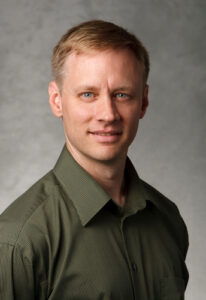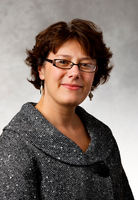Dr. Massimo Faggioli, Theology Department, College of Arts and Sciences, is the author of three articles: “Vatican II at 50 Years (1962-2012): Macro-Issues of the Debate on the Council,” published in Eastern Journal of Dialogue and Culture, 5/2 (2012), pp. 9-24; “I movimenti cattolici internazionali nel post-concilio: il caso della recezione del Vaticano II in Italia, published in Da Montini a Martini: il Vaticano II a Milano. I. Le figure, eds. Gilles Routhier, Luca Bressan and Luciano Vaccaro (Brescia: Morcelliana, 2012) pp. 455-471; “Pericle Felici, Johannes Paulus I, Johannes Paulus II, Alfredo Ottaviani, Sebastian Tromp (ad vocem),” published in Personenlexikon zum Zweiten Vatikanischen Konzil, eds. Michael Quisinsky and Peter Walter (Freiburg i.B.:Herder, 2012) pp. 103-104; 145-147; 204; 274-275; and “The Battle over ‘Gaudium et Spes’ Then and Now: Dialogue With the Modern World After Vatican II,” published in Origins, vol. 42:34, pp. 545-551.
Dr. Mike Klein, Justice and Peace Studies Department, College of Arts and Sciences, is author of "Cell Phones, T-shirts and Coffee: Codification of Commodities in Circle of Praxis Pedagogy" in Peace Studies Journal, vol. 6:1. Many commodities and consumer products are produced in regions that experience oppression, conflict, and war. These objects connect us to a global web of relationships that sustain direct and structural violence. This article presents a modification of 20th-century Freireian pedagogy by examining codifications of such commodities for application in the globalized culture and capitalist political economy of the 21st century. Codifications may be employed in education to encourage exploration of these relationships beyond our immediate experience of social phenomena, engage in critical analysis of complex issues, thoughtfully reflect on normative assumptions and plan action for positive change. These are the four steps of a pedagogical model titled the Circle of Praxis. This model is explained through codification of a cellphone and described more thoroughly in the codification of T-shirts. Finally, the process of developing codifications is examined through the example of coffee.
Dr. Salina Renninger, LP, Graduate School of Professional Psychology, presented a poster, “ACCTA Diversity Scholarship Program: Benefits to Scholars and the Sponsoring Organization,” at the National Multicultural Conference and Summit in Houston, Texas. The research that the poster described was a joint project with Dr. Sarah Armstrong, LP, Counseling and Psychological Services, J. Phillips, M. Herman, K. Magnus, F. Savino, K. Taylor and F. Vajk. More information on the conference and a pdf of the program (which lists the poster) can be found here. Renninger notes that there is a typo in the program, in that they spell ACCTA as ACTA.









